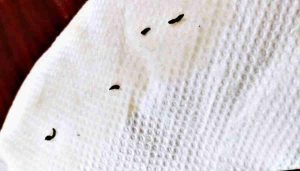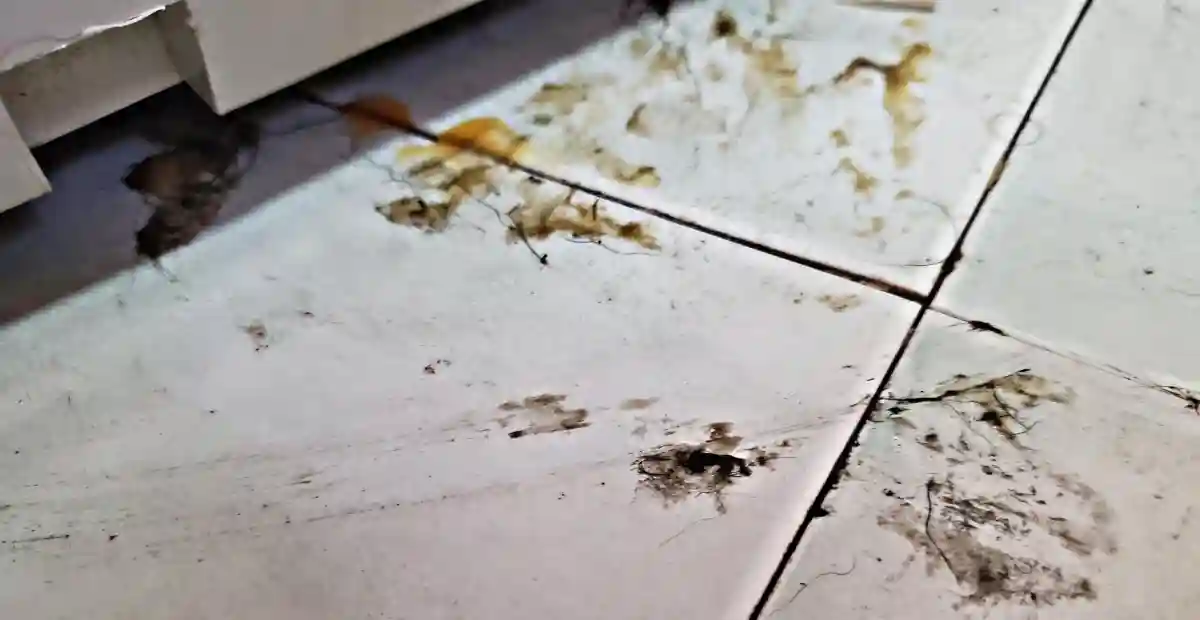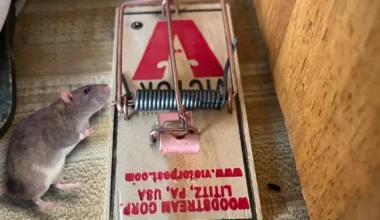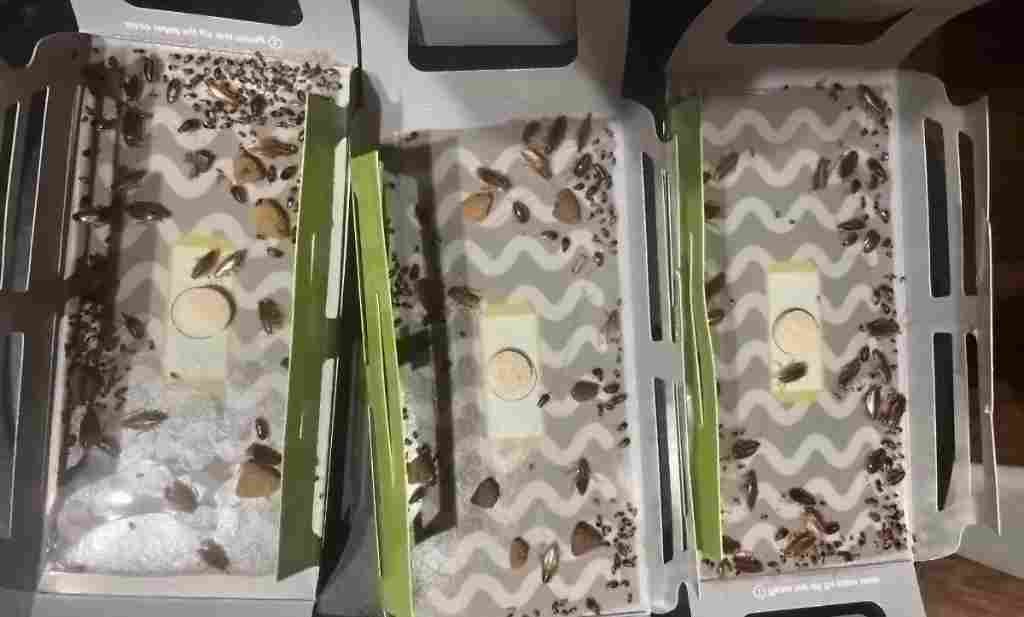Accidentally ate mouse droppings, what are the chances of getting sick from mouse droppings? Generally, mice as pests are associated with harmful diseases. They are quite dirty animals and their feces, saliva, and urine can contaminate foods and cause an allergic reaction. Mice droppings are also dangerous transmitters of foodborne pathogens.

Accidentally ate mouse droppings
Don’t panic! However, hantavirus can possibly be contracted through eating mice droppings which can be lethal, but it is usually VERY RARE. Deer mice are very common in the home and are disease carriers. Thus, it can be said that most people have eaten mouse poop without even noticing it on one occasion or the other.
Mice droppings always have a way of penetrating your cereal boxes, plates, silverware, etc. It could either be in your home, a friend’s apartment, a family member’s home, or even a luxurious restaurant without people noticing it.
A lot of times, people have handled items that have been contaminated by mice droppings without realizing it and they didn’t even wash their hands because they “believe” it’s already clean. Some people even keep mice as pets. In fact, they’ve been described as “great pets” by experts.
People who keep them as pets play with them, and most times they get bitten (rabies is extremely rare in deer mice). Moreover, there’s a good chance that mouse owners don’t remember to wash their hands after feeding them, giving them water, or cleaning their cages.
Moreover, there have been no reported fatal cases of Hantavirus in most states or even on online forums and communities.
It is natural for you to get nervous about the Hantavirus infection, but if you seek urgent medical attention, the doctors would advise that you look out for possible symptoms first before they can do anything serious. Again, don’t panic if you’ve just eaten mouse poop.
Can you get sick from eating mouse droppings? Researchers have found that contaminated food by urine, saliva, and poop of mouse can make people fall sick (see CDC’s publication), especially the fresh ones.
If you have a mouse infestation, and they contaminated your foods, it is very possible that you could fall sick from diseases such as leptospirosis and Hantavirus, depending on your location or country.
What happens if you accidentally eat mouse poop?
Below are the various diseases that can be spread to humans through direct contact with infected mice when you accidentally eat mouse droppings:
1. Hantaviruses
Hantaviruses viruses are mainly spread by rodents like mice and can cause different disease symptoms in people globally. In America, Hantavirus is known are “New World” this may cause hantavirus pulmonary syndrome (HPS). Hantaviruses in Europe and Asia are called “Old World” Hantaviruses, which may cause hemorrhagic fever with renal syndrome (HFRS). The most notable Hantavirus in the United States that can cause HPS is the Sin Nombre virus spread by the deer mouse.
2. Leptospirosis
Leptospirosis bacteria affect both humans and animals and are caused by the genua leptospira bacteria. This type of bacteria can cause a wide range of symptoms which can sometimes be mistaken for other diseases. However, some infected persons, may not have symptoms at all.
Leptospirosis can cause:
- kidney damage
- meningitis
- liver failure
- respiratory distress and
- death (if proper attention is not given)
3. Lymphocytic choriomeningitis
Lymphocytic choriomeningitis (LCM) is a rodent-borne viral infectious disease caused by lymphocytic choriomeningitis virus (LCMV). House mice are the primary host of LCMV. Other rodents like hamsters are, however, not the natural carriers but can become infected with LCMV from wild mice at the breeder, in the pet store, or home environment.
Humans are more likely to contract LCMV from house mice, but infections from pet rodents have also been reported.
4. Rat-bite fever
Rat-bite fever (RBF) disease caused by two types of bacteria:
- Streptobacillus moniliformis
- Spirillum minus
You can be infected with rat-bite fever bacteria after direct contact with infected mice. You could also get infected through food consumption, contaminated water, and droppings of mice carrying the bacteria known as Haverhill fever. If left untreated, RBF can be fatal.
5. Salmonella
Eating food contaminated by mouse droppings can cause Salmonella illness. Most patients experience diarrhea, fever, and stomach cramps and the symptoms begin 6 hours to 6 days after infection and can last up to 4 to 7 days.
You can recover without specific treatment and antibiotics. Besides, antibiotics are usually used to treat people with severe illnesses or who are at risk.
How long does it take to get sick from mouse droppings?
If you are infected with HPS after eating mouse droppings, you will feel sick between 1-5 weeks after direct contact with infected mice droppings. After a few days, you may find it difficult to breathe. Other symptoms include headache, dizziness, chills, nausea, vomiting, diarrhea, and stomach pain.
What to do
If you accidentally ate the droppings or feces of an infected mouse, you may not have the symptoms now, but you may in a week or months. Your healthcare professional should be able to determine what’s best for you at the moment. Overall, don’t panic. See your doctor ASAP.
How to handle mouse droppings
Follow the steps below if you’ve noticed an infestation to safely remove the mouse poop from your home:
Ventilate the contaminated area
You want fresh air in the area for about 30 minutes to remove the contaminated particles. Just leave the windows and doors open.
Pick mouse droppings with protected hands
Do not touch the mouse droppings with your bare hands. Wear a long-sleeve shirt, mask, and protective gloves. After cleaning, you’d have to remove the gloves and wash your hands/clothes using soap and warm water.
Apply bleach solution on the contaminated surface
Use bleach to water ratio of 1:10 to create your cleaning solution. Spray the solution on hard surfaces and allow up to 5 minutes for the disinfectant to sit. If you find any contaminated cardboard and other material, dispose of them. Don’t use vinegar, it is not a proper disinfectant for cleaning mouse poop. Here’s a publication where we’ve explained the ineffectiveness of vinegar on mouse feces.
Don’t vacuum or sweep
You don’t want to stir things up—as such, do not sweep or vacuum to avoid breathing in contaminated dust. The right thing to do is to pick up the droppings using a paper towel and place them in an airtight plastic bag. Keep spraying the solution and wipe down surfaces contaminated with poop.
Use the same 1:10 bleach solution or household disinfectant to clean the floor and other surfaces. If any clothing, towel, and bedding have been exposed to the mouse poop, make sure to wash them using a washing machine, soap, and hot water.
Dispose of the nest
Spray bleach solution on mice nests and allow up to 5 minutes before picking and placing them in an airtight plastic bag. Make sure to double the bag and seal it before disposing of it in a sealed trash can.
How to get rid of mice
Of course, you’ll also want to take the right steps to get rid of the rodent leaving the droppings behind. Here’s what to do to expel the mice:
Seal the holes and gaps
Make your home mouse-proof by repairing, caulking, and filling openings within and outside your property. Use steel wool and sealant to block the mouse’s passage. Look out for dime-sized holes around pipes, vents, as well as fireplaces.
Take away what mice want
Mice are after two things: food and shelter. Make sure to clean up spills, put away leftovers, and store your pet seed, food, and other dry foods in lidded plastic tubs.
Reduce the clutter in your home and take the trash out regularly. Make sure to replace cardboard boxes with plastic bins. Outside the house, remove debris and potential mice hideouts such as compost heaps and firewood stacks.
Note that high-quality cleaning does not get rid of rodents. However, it will not attract them, compared to having a dirty home. Therefore, keeping your home clean is only part of the fight against mouse and their poop and not the general solution.
Bait the pests
Mice reproduce rapidly, so you want to solve the infestation problem right away. Note also that sometimes, your bait trap may not work, and that means you’re making a mistake. Here are possible reasons your mouse trap won’t catch the rodents though the food keeps missing.
If you can’t eliminate the mice problem yourself, contact a professional exterminator to do the job. Note, however, that an exterminator can’t advise you if you’ve just eaten mouse poop—that’s the job of your local healthcare provider.





